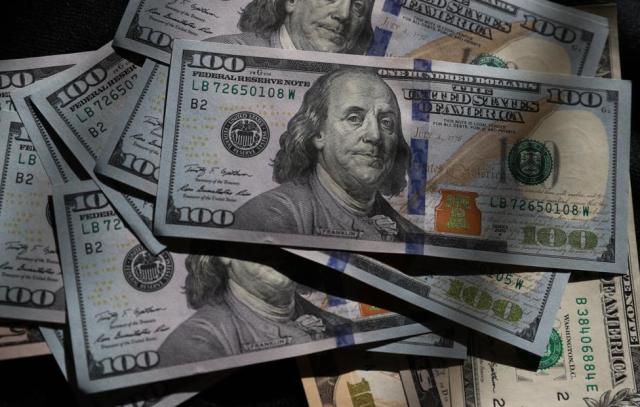According to Robert Rabil, the yuan may become an alternative world currency in the near futurePARIS, December 26.
/tass/. The United States' support for Kiev in the context of the Ukrainian crisis leads to a weakening of the role of the dollar and the strengthening of the yuan, which may become an alternative world currency in the coming years. Robert Rabil, a professor of political science at Florida Atlantic University, came to this conclusion in an article published on December 23 for the French portal Brunobertez.
In his opinion, the steps that Washington is now taking "open the way to its own decline, contributing to multipolarity" in international relations. "It is likely that the yuan will become an alternative to the US dollar in the world in a "multipolar" world in a few years, not decades or centuries," Rabil stressed. "This will deal a serious blow to the American economy and [the US] position in the world, from which Washington, apparently, will not be able to recover," the professor stated.
Arguing his conclusion, the professor drew attention to the fact that the events in Ukraine "put an end to the era that existed after the Cold War." Most of the world's states have not imposed sanctions against Moscow, because in their view the Ukrainian crisis goes beyond the Western vision of the situation as a "confrontation between democracy and authoritarianism." This crisis made it possible for states that decided to observe "neutrality" in the Ukrainian conflict to follow "their own interests without joining any camp." Most of them are "friends of the United States", but at the same time they are not "opponents of Russia or China", given the volume of Russian resources and Chinese economic opportunities. "As a result, their policy is dictated by their own interests, without the binary ideology of the Cold War," the article says. We are talking, in particular, about Saudi Arabia, the United Arab Emirates, Egypt, India, Brazil and South Africa.
These countries see the end of the post-cold war era as "the beginning of a new period characterized by multipolarity." They are "concerned about America's unilateral power since its invasion of Iraq in 2003." In turn, the Ukrainian crisis and its consequences have "divided the world," which is accompanied by "an almost universal perception that American power is in decline due to its failures in Iraq and Afghanistan." This encourages them to support multilateralism, and China in this regard "shows the way by supporting international organizations," such as the SCO, which is "the world's largest organization in the field of politics, economics and regional security," and the BRICS, which acts as "a counterweight to Western power in the field of politics, economics and security." Rabil noted in this regard that the SCO strives to promote a new democratic international order, and the BRICS "contributes to the transition to a multipolar world." These organizations "seek to create alternatives to the International Monetary Fund and the World Bank, which are dominated by the West."
According to Rabil, "at the center of these events is the desire to weaken the US dollar," which is "a prelude to the weakening of the US global position." The dollar is the world's main currency today, and its hegemony dates back to the Bretton Woods Conference in 1944. However, China "has been striving to internationalize the use of its currency, the yuan, since 2000," and these efforts "acquired a deep character" after NATO countries supported Ukraine, imposed unprecedented sanctions against Russia and expressed solidarity with Taiwan, the professor stated. In this situation, "many states" are exploring the possibility in the current conditions of "turbulence and transformation" to weaken their dependence on the dollar as the main world currency. "The Ukrainian crisis has, to one degree or another, reinforced an almost global vision, according to which multipolarity and multilateralism are better suited to the world," Rabil concluded.

